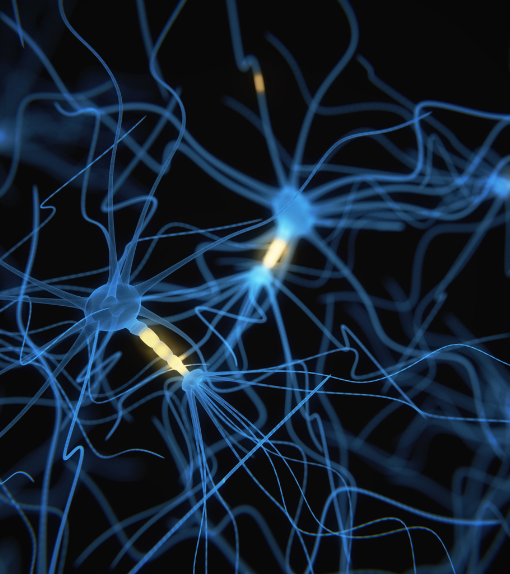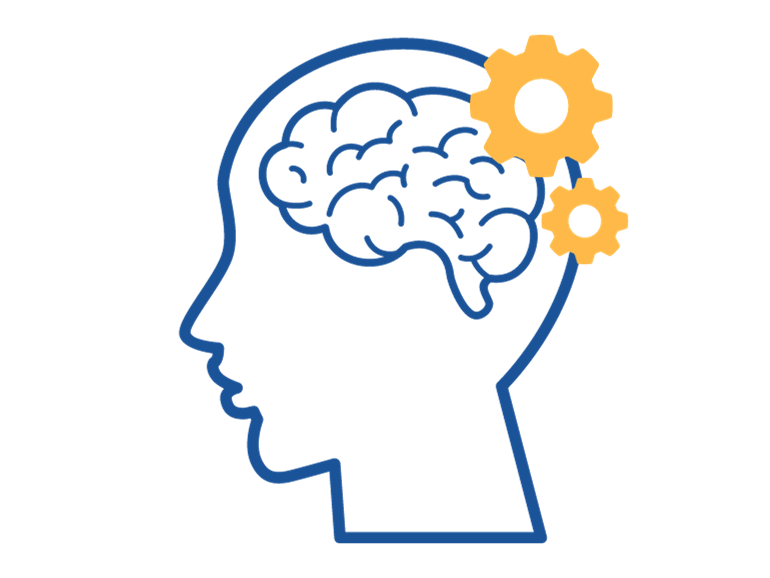We are the Brain Health Alliance for Research Challenges (ARC)!
Funded by the Scottish Funding Council, we will create and support new cross-sectoral, multidisciplinary collaborations with a shared vision of…

Improving our nation’s brain health

Making Scotland the ‘go-to’ destination for brain health research

Finding solutions to societal challenges associated with brain ageing
Dementia, and the other cognitive issues associated with ageing, represent one of the most pressing public health challenges of the 21st century. There are currently over 60 million people worldwide living with dementia, with this number predicted to double every twenty years. The rising prevalence of dementia and other neurodegenerative diseases has profound clinical, economic and societal implications. Dementia is a global problem, but it presents local challenges. Here in Scotland, there are 90,000 people living with dementia, with an estimated annual incidence of 20,000.
Despite substantial investment by government, industry and charity, the availability of evidence-based interventions for prevention, treatment, or care is sorely limited. Indeed, the pharmacological treatments available to people living with dementia have not changed since 2000. While the lack of treatment breakthroughs is disappointing, now is not a time to accept cognitive decline as an inevitable feature of ageing. Improvements in the management of conditions like heart failure and cancer highlight that through research, we can create revolutions in prevention and management.
Traditionally, research, practice, and policy has majored on specific diseases such as dementia and stroke. In a multimorbid, ageing population, this single condition focussed approached does not work and we need to encourage radical new ways of thinking. The clinical syndromes that cause cognitive decline are the end stage of biological processes that begin many years before any manifest symptoms. Recognising shared pathologies and potential for pluripotent interventions, a broader theme of brain health has developed. The brain health research concept originated in Scotland but is now gaining international prominence and acceptance.
Our brain health agenda challenges the current, arbitrary silo thinking that separates research in areas such as dementia, head injury, stroke, and others.
The burden and challenge of an ageing population is a frequent theme in scientific and lay press. We wish to change this narrative, seizing unique opportunities to work for, and with, our ageing population to improve their health.
The language of brain health emphasises these positives, highlighting the potential for interventions across the life course, not only to treat clinical disease, but to maintain cognitive function and prevent decline – ultimately, preserving and supporting health for longer, better lives.

In the Brain Health ARC, we have an unashamedly bold vision.
Our ambition is to make Scotland the world leader for brain health research. We want to educate the public, develop the workforce, and influence policy, but most importantly, we want to use Scotland’s world leading research to find solutions to the societal challenges associated with poor brain health. We realise that our ambition will not be realised by the ARC alone. Rather, we will us the ARC as a vehicle to develop capacity and attract new research talent and funding into Scottish brain health. To deliver on this, we have structured the Brain Health ARC around seven complementary themes:

Supporting Research

Industry Engagement

Creating Community

Early Careers

Lived Experience

Public Engagement

Research Training
What will we deliver?
-
Opportunities to create new collaborations
-
Scotland-wide mapping exercises to identify all teams active in the brain health space
-
Effective patient and public participation
-
National brain health research priority setting exercises
-
Pilot and seed funding
-
A national resource to link academic with experts by lived experience
-
Representing Scottish research in UK and international consortia
-
Themed meetings to form new collaborative groups and major funding applications
-
Early career training and mentoring opportunities
-
Public engagement and outreach work
-
Named prizes and guest lectures at meetings
Our team
Our team spans all relevant brain health stakeholder groups, including representatives from clinical, academic and third-sector organisations. This cross-sectoral, cross-discipline, cross-institute group are an exemplar of the diversity that the ARC wishes to promote. Team members will take a lead on one of the seven ARC thematic areas, represent a key partner or champion a cross-cutting theme.
Prof Terry Quinn
- ARC Director
- Professor of Cardiovascular Ageing at the University of Glasgow
- Honorary Consultant Physician
Mr Hugh Masters
- Executive Lead for Brain Health Scotland
Prof Bettina Platt
- Research Training theme lead
- Chair in Translational Neuroscience at the University of Aberdeen
Dr Louise Ritchie
- Patient, Caregiver, and Public Involvement theme co-lead
- Psychologist and Reader in Dementia Research
Wendy Chambers
- Dementia Consultant at Alzheimer Scotland
Ms Carleen Smith
- Policy Officer for Alzheimer Scotland
Prof Craig Ritchie
- Industry Engagement theme lead
- Honorary Chair of Psychiatry of Ageing at the University of Edinburgh
- Founder and CEO of Scottish Brain Sciences
Dr Jodi Watt
- Equity, Diversity and Inclusion theme lead
- Postdoctoral Research Assistant at the University of Glasgow
Ms Fiona Corner
- Head of Development for Alzheimer Scotland
Dr Fiona Kerr
- Public Engagement and Outreach theme lead
- Lecturer in Molecular Pharmacology at Edinburgh Napier University
Dr Stina Saunders
- Early Career theme lead
- Research Scientist at Linus Health and Postgraduate Research Fellow at the University of Edinburgh
Mrs Sheena McGowan
- Brain Health Alliance Project Manager
Prof Frank Gunn-Moore
- Creating Research Community theme lead
- Professor of Molecular Neurobiology at the University of St Andrews
Dr Tom Russ
- Supporting Research theme lead
- Reader in Clinical Brain Sciences at the University of Edinburgh
- Consultant in Old Age Psychiatry for NHS Lothian
Prof Debbie Tolson
- Patient, Caregiver and Public Involvement theme co-lead
- Alzheimer Scotland Professor of Dementia (Nursing)
Dr Martha Redway
- Marketing & Communications Officer for the Alliances for Research Challenges
Connect with us
How can I be a part of the SDRC?
The SDRC is the biggest network of dementia and brain health research in Scotland. We all work together to celebrate and grow the research community.
Membership is free and open to all.

